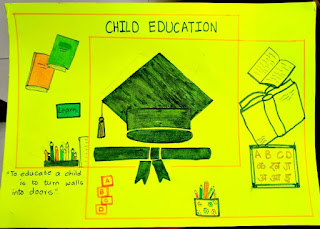ICA Nepal in coordination with Kalpa Academy launched Sustainable Development Goals (SDGs), Ambassador, through Youth Facilitative Leadership Programme. The program intended to engage youths in activities through imparting knowledge about Sustainable Development Goals (SDGs) and building skills on project design and implementation.
Kalpa Academy “Center for Governance and Sustainable Development” has been working in Nepal since 2019 with the main motto of contributing positively to the broad objectives of sustainable development in Nepal and strengthening Nepal's human resources with life-related skills and knowledge whereas ICA Nepal has been facilitating different capacity-building sessions aiming at the holistic development of the nation since 1998. The program related to the Youths has always become one of the core projects of ICA Nepal. We collectively believe that the Youths are the future of the nation and they must be nurtured with awareness and knowledge for the sustainable development of the nation. Over the strong words of David Nabarro “When it comes to sustainable development every county is a developing country” we hoped to implement this very program aiming at Youths. The launching event was held on 21 October 2021 in the presence of hundreds of youths along with University Professors and development workers. Professor Robertson Work, the chief guest of the event, emphasized the contribution that these innovative programs will bring to the development of youth and the accomplishment of UN initiatives. We will be working with young people directly through training and mentorship. The first batch of the training will start at the end of November to facilitate the youth on SDGs. The purpose of this training is to provide young people with the opportunity to participate in these programs and integrate the SDGs into their daily activities.
The Youths are the future of the nation as well as the key driver for the successful implementation and development. Kalpa Academy and ICA Nepal coordinately strive to engage and educate more youths through SDG education. We believe that every Youth is important, they are agents and leaders of the developed nation. The program is an initiative meant for enabling Nepali youths and contributing to SDG. It is a scheme for learning through engagement. The session highly focuses on Leadership and Capacity Development, Gender Equality and Social Inclusion, Quality education, Disaster Risk Management, and Good Governance.
During the launching event, we successfully conducted a brief survey regarding general information about the SDGs. The experts reflected on the serious topics related to the SDG, and Millennium Development Goals along with the brief introduction of Malala Yousafzai. The survey aimed to enlighten youths about their opportunity with more interaction. The Manager of Kalpa Academy Er. Ravi Khanal enlightened the participants on previous SDGs from 2000 to 2015 and the upcoming fifteen years plan from 2015 to 2030.
The program provides a basic introduction of Module/Case Studies, Workshop/Training/Seminar, along with Field Visit and Presentation. The program carries a 3-month learning period of 2:30 hours per week, including report preparation and presentation. The session extends up to four months with 3 different batches each i.e Nov-Jan (Batch 1), Mar-May (Batch 2), July-Sep (Batch 3), with Certificates. The training will be facilitated with an individual coaching session, personal profiling, skill development training, communication skills, project proposal writing, and many more facilities. What one person perceives as a pain point, another individual may not see it in the same light or see it as an issue that needs to be addressed. This training will bring together students, experts, and practitioners of Governance and SDGs in real-time situations. Excursions in different fields/organizations will also add awareness among the attendees. The experts from Governance institutions/Organizations will provide an insight into their respective fields of work where the Youths will get a chance to directly learn from the specialists and exchange their ideas. At the end of the training, the ambassadors will make participants skilled to interact with officials concerned and work out a program independently on the relevant themes. The attendees will get support for learning, coaching, evaluating, collaborating, and implanting.
After the completion of the training, we have envisioned letting youths know more about their responsibility towards the nation along with professional and personal development through more secured career goals. The enhanced capacity for action-orientation, efficiency in partnership, and handling resources, and visible reliable act of sustainability can be observed among the attendees. The program helps Youths to think outside the box and develop decision-making capacity without being bound by preconceived ideas. Youths who want to contribute positively to society but don’t know where to begin, then this program is for them as one cannot bring change on its own they must be guided. Youths must learn to build a network and work in a team with the groups pursuing the same goal. The session also increases the capacity of the Youths in CV/Resume making, imparting knowledge, exposure of opportunities, social inclusion, and quality life through SDGs. The session will be chaired by experts nationwide and around the globe. The launch event was very fruitful and the attendees also showed their interest in getting involved in this session promptly.
Prepared by: Swikriti Parajuli
I’m a student and I believe in learning and sharing. Besides community development, I’m passionate about arts, music, and sports.
ICA Nepal is an experienced team dedicated to working in the field of human capacity building, and community development through advanced methods. It pursues to recognize people’s initiation, creativity, and enthusiasm in bringing sustainable development by considering existing cultural dynamics and pluralities. It is committed to creating an environment, in which the opportunity to participate and the construction of sustainable change and development is foremost.






























